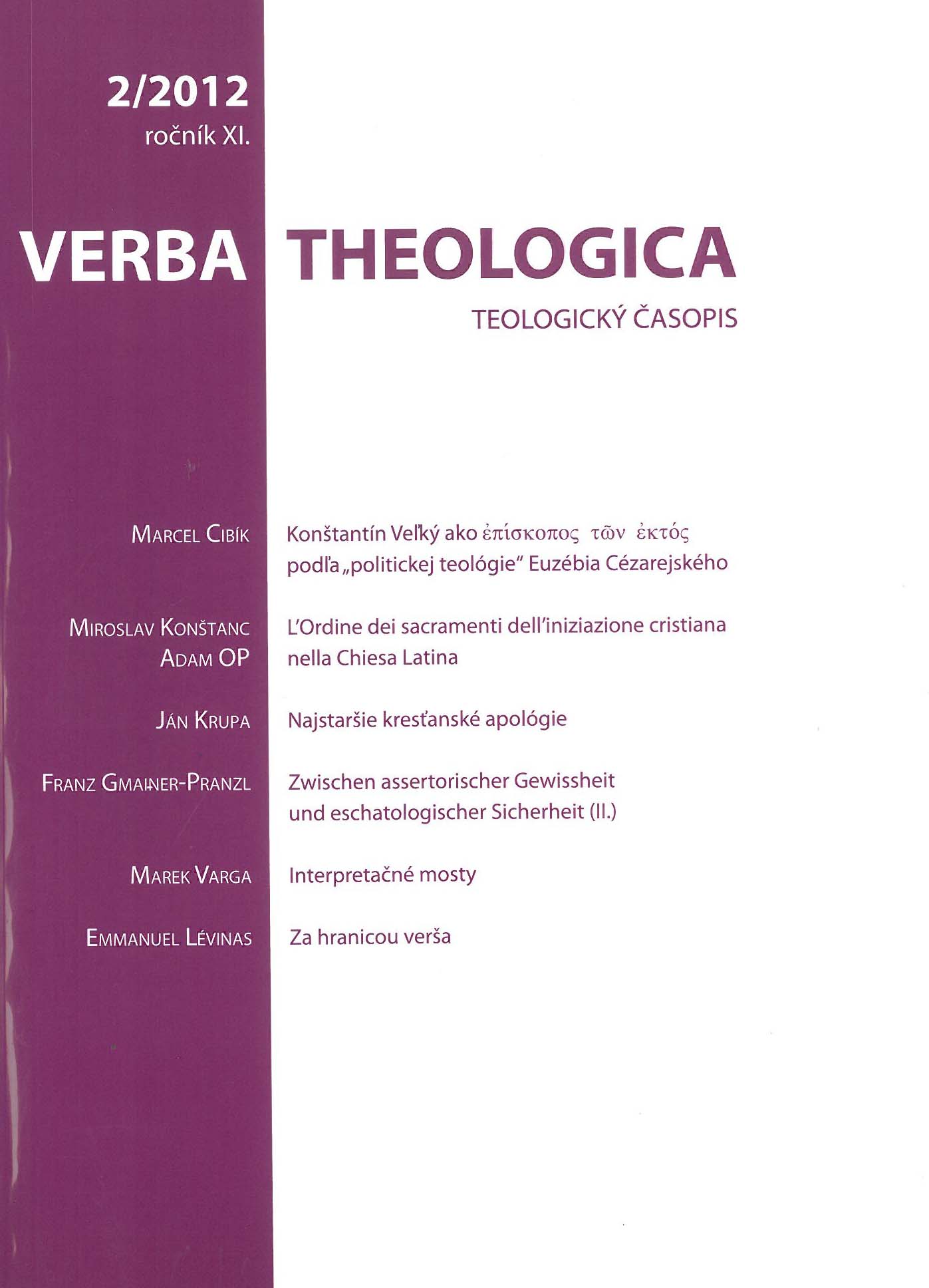Konštantín Veľký podľa „politickej teológie“ Euzébia Cézarejského
Constantine the Great According to the Political Theology of Eusebius of Caesarea
Author(s): Marcel CibíkSubject(s): Christian Theology and Religion, Philosophy, Political history, Theology and Religion, Politics and religion
Published by: VERBUM - vydavateľstvo Katolíckej univerzity v Ružomberku
Keywords: Constantine; „political theology“; imitation of Christ; bishop of those outside the Church;
Summary/Abstract: With the end of persecution, the unification of the Roman Empire and the christianization of the Roman Empire in the fourth century, the conception remained no longer concentrated in the eschatological renewal. The imperial idea of Christian reform is inseparable from the Constantinian age. According to Eusebius of Caesarea the emperor’s imitation of Christ is formulated as imitation of the divine Logos: Constantine rules for the Logos just as the Logos Himself rules for the Father. This conception of imperial Christomimesis was to remain the basis of Eusebius „political theology“. Eusebius finds in the earthly rule of Constantine elements, which are derived from the heavenly rule of God Himself. Thus the emperor receiving a copy of the divine sovereignity directs, in imitation of God Himself, the administration of this world‘s affairs. The emperor‘s relationship to God is seen as an imitation of the relation between the divine Logos and the Father. According to Eusebius, the ordering of the world being is hierarchically organized: God-Christ-Constantine. Presumably after the Council of Nicaea in 325 at dinner, the emperor Constantine informed his guests, bishops, that he was too ordained by God as a bishop of those outside the Church (VC 4,24). As the emperor of Rome but also a sort of bishop, Constanine is presented as propagating Christian belief and practice as well as divinely authorized to dictate the religious beliefs of his subjects-laics. He believed that God gave him a special mission to convert the Roman Empire to Christianity.
Journal: Verba Theologica
- Issue Year: XI/2012
- Issue No: 2
- Page Range: 5-21
- Page Count: 17
- Language: Slovak

